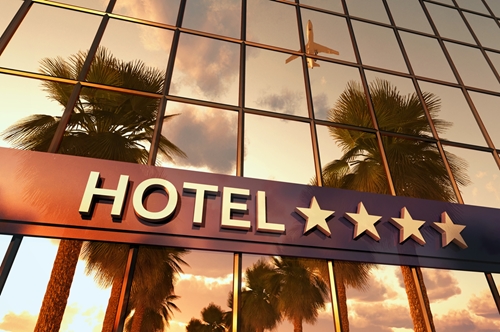Managers face numerous risks associated with operating a hospitality establishment, and as the the year winds down, it’s important to step back and take a critical look at the trends likely to impact the industry in 2016. From upgrading security measures to reacting to shifting customer trends, hoteliers, and their insurance brokers, must remain ever vigilant in protecting their enterprises and safeguarding their guests. The hospitality industry took home a significant amount of revenue in 2014, and many analysts expect hotels and motels to see higher profits in 2015 and accrue more revenue. As PricewaterhouseCoopers reported, revenue per available room, or RevPAR, for 2015 is expected to increase 6.5 percent by the end of the year. Still, with a swath of potential risks threatening the industry as a whole, as well as specific hospitality establishments, managers and operators need to address each of these issues head on and as early as possible. Record occupancy rates As the economy continues to slowly but steadily improve and average wages begin ticking upward, the rate of travelers will also increase. According to Hospitality Net, the occupancy rate for hotels will continue to reach record levels well into 2017, as the change in the supply of lodging accommodations is expected to under serve the projected demand. As such, market analysts predict a 66 percent national occupancy rate for the next two years.
 Hotel operators will have to handle record occupancy rates for the next few years.
Hotel operators will have to handle record occupancy rates for the next few years.“The fundamental characteristics of the economy remain relatively unchanged, as the labor market continues to improve and GDP growth remains steady if moderate,” said R. Mark Woodworth, senior managing director of PKF-HR. “Accordingly, our forecasts for demand and average daily rate (ADR) growth remain above the long-run average in both 2016 and 2017. In addition, according to U.S. Commerce Department data, the number of international travelers to the U.S. continues to rise, with 2015 expected to experience a 0.4 percent increase in global tourists, which should set a new record of 75.3 million individuals who visited the country and stayed at least one night. Further, the Commerce Department is forecasting this number to increase by 2.6 percent in 2016, with a predicted 77.3 million international visitors. Catering to customers The rise of big data has offered a host of industries the opportunity to analyze key factors about customer shopping and spending habits, and it turns out many people are also willing to provide this data to hotels for more personalized experiences. According to a recent report released by Sabre Hospitality Solutions, hoteliers can gain a definitive market edge by utilizing technology and data to cater to individual preferences and capture guest loyalty.
“Travelers are open to sharing personal data to hotels in exchange for deals and discounts.”
With access to this information, hospitality establishments will be expected to gather this crucial customer data and use it to tailor packages and offerings specifically to market demand. The report found that travelers are open to sharing personal data with hotels in exchange for relevant deals, loyalty points or discounts that correspond to their preferences. The rise of cybercrime As the number of occupants is expected to rise, so to will the incident of cybercrime. Despite the best efforts of security experts and digital encryption strategies, point-of-service terminals, data servers and internal networks are all still vulnerable to cybercriminals. Independent motel operators, limited-service franchises and large national chains are all susceptible to the threat of becoming a victim to a security breach or computer virus that could wipe out the entire system. Hilton Worldwide was the most recent victim of a high-profile cybersecurity breach. After working with law enforcement, third-party forensics experts and payment card companies, the investigation determined that the hotel chain suffered from an unauthorized malware infection that breached point-of-sale systems and accessed payment card information. As Fortune noted, the hospitality industry has been hit with a string of security breaches as of late, with the Marriott group – which includes Westin, Sheraton and W Hotels – as well as the Trump Hotels, Mandarin Oriental Hotel Group and White Lodging all coming under attack of cybercriminals in recent months. Mitigating risks With so many risk factors plaguing the hospitality industry, hotel managers and the brokers working with them need to have a partner they can turn to who can help mitigate exposure to these risks and protect them when they need it most. From automobile accidents during the transportation of guests, to the employers’ liability, it pays to expect the unexpected. Brokers who team with McGowan Program Managers Hospitality Division gain a vast wealth of knowledge about the complexities of providing the coverages necessary in the ever-evolving hospitality industry. With the “Power of the Pen,” McGowan can craft unique hospitality umbrella insurance policies that specifically address the unique problems impacting the hospitality industry.



